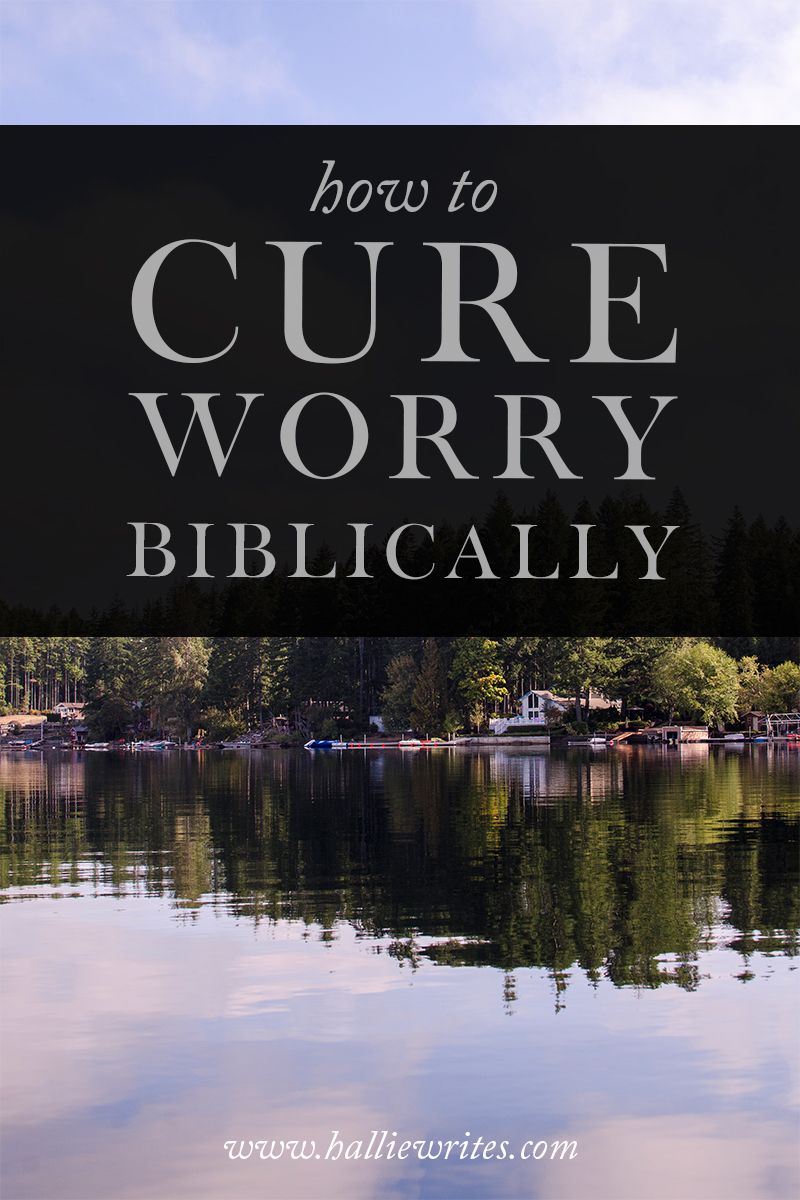don't believe everything you think
/There’s a bumper sticker out there that says, “Don’t believe everything you think.”
I had an anxiety attack last week - something unlike anything I’ve experienced before, despite having more than my share of chronic anxiety in my lifetime. This was the first time it really felt like that long-unwanted companion was actually attacking me.
It came with the shakes, nausea, and a sense of terror and impending doom - my mind screaming at me, “RUN! FIGHT! SOMETHING TERRIBLE IS ABOUT TO HAPPEN!”
The irony was, of course, that it was those very thoughts that kept me frozen, paralyzed, capable only of crumpling up on my bed and trying to remember how to breathe. Something terrible was about to happen, but I was utterly helpless to stop it or to save myself.
There’s no fear quite like that one.
And yet, ten minutes later, nothing terrible had happened. My raging adrenaline began to recede and my mind began to clear and before too long, the whole episode seemed almost silly somehow, even though the panic had been all too real.
My mind had lied to me.
This is not the first time I’ve been faced by my brain’s pathological dishonesty, and it won’t be the last, but it was a stark reminder of how much fear and freedom come with the discovery that our brains can be liars. Fear - because it suddenly feels like the enemy himself holds territory inside us, and so he does in a way; Satan is “a liar and the father of lies” (John 8:44) and any lie that takes us into its grip must be a victory for him. And freedom - because at last we realize that we don’t have to be helplessly battered by every cruel, critical, or anxious thought. At last we can build a strategy for our defense.
But as anyone who has ever been lied to from within can tell you (and that’s all of us), it’s rarely as simple as it would seem.
Jesus said, only a couple of paragraphs before the words I just quoted from John 8, “If you abide in my word, you are truly my disciples, and you will know the truth, and the truth will set you free” (John 8:31-32). Clearly the strategy to get free from the choking grip of falsehood is the same one Jesus Himself used when He was tested by Satan in the wilderness: We must cut through the lies’ noose using the sharp blade of Truth.
But there’s a step that comes before that. Before we can do any heroic sword-wielding, we must know the truth.
And this, I think, is where so many of us get stuck.
In our age of technology where almost every claim can be backed up by measurable evidence, it seems we’ve developed an assumption that believing what is true instead of what is false will be easy. Truth is objectively confirmed, and stands resolute regardless of subjective measures like individual feelings, thoughts, and beliefs. So it shouldn’t be that hard to identify and take hold of. A sword looks much different from a noose.
And yet Jesus also said, “But because I tell you the truth, you do not believe Me” (John 8:45).
We may think ourselves to be rational and objective and intelligent beings, but when there’s a voice inside our heads that says “You are worthless” and a voice outside of ourselves saying “You are inestimably valuable,” we will invariably choose to believe the subjective voice within us. It doesn’t matter that all evidence points the other way - that every other human being is clearly inestimably valuable, or that God Himself is the one who says it, or that Jesus Christ shed His blood for us. We still trust our own minds above all.
So we will catch a glimpse of the very sword that could set us free, but then decide that we’d rather remain suffocated by the noose than risk falling on a sword. It’s not that we want to believe lies - it’s that we can’t even identify which is the method of execution and which is the way of escape: the noose, or the sword? The long-held beliefs of the mind, or the objectively-validated statements of God’s Word? The Father of Lies, or the One who is called Faithful and True?
Yes, the truth has the power to set us free. But first we have to know the truth. We have to be able to identify it when we hear it, to differentiate between what is familiar and what is freedom.
Huge leaps have been made in the last few decades in the understanding of the human brain. We know that the brain is highly malleable, especially when we are young (which is when most of us first accept lies into our patterns of thinking). We also know that the brain is made to be efficient to the point of laziness. It will always choose the path of least resistance - it will always choose what is familiar, even when what’s familiar is harmful.
It will always follow the same old pathways that the lies have entrenched in it unless we make the daily, concerted effort to alter those pathways.
For me, it takes only a small trigger to set off a chain reaction of anxiety in my brain, following the lead of very familiar lies such as, “It’s your fault.” “You’re not safe.” “God can’t be trusted.” “If you don’t fix it, no one will.” “This happened because you’re not good enough.”
These statements sound very, very true to me even though they’re very, very false. They are so deeply wired into my brain that even when I manage to recognize the tightening of the noose, it still takes immense effort for me to grab hold of the sword and cut myself free. But I am, at least, beginning to recognize the sword as my weapon of defense, not as another threat to my safety.
Let’s do away with the assumption that the truth is easy to believe. Even when we can see all the evidence before us, it’s nearly always easier to trust the comfortable lies. Rebuking Satan is hard. Reaching for freedom is hard. Allowing Jesus Christ, the Word of God, to define our reality is hard.
But God put the most magnificent piece of all His creation right between your ears. The human brain is not static. It molds and shapes and responds to the input it receives and the habits it forms, and it is empowered even further by the Holy Spirit who lives within us. We do not have to live in captivity to lies - our minds can be made new!
And do not be conformed to this world, but be transformed by the renewing of your mind, so that you may prove what the will of God is, that which is good and acceptable and perfect.
Romans 12:2
The first step is to know the truth.
And then the truth can set you free.
But what do I do if I don’t know the truth?
Most of us formulated a mix of truth and lies as the basis of our understanding of the world when we were growing up. The exact recipe is different for each of us, depending on what our parents taught us, patterns of emphasis in our homes, our unique personalities, and our encounters with God.
The first thing we can do to find out what is true is, of course, to know God’s Word. The Bible is our ultimate source for truth, and it speaks directly to questions of human value, responsibility, shame, worthiness, love, sin, and the character of God. This will be your foundation.
But many of the lies we believe are highly specific to ourselves and difficult to rebuke with a generalized verse alone. Often, one of the keys to rejecting the lies we’ve held close is understanding where they came from and why we believe them in the first place. This is where the community of believers can be a vital resource in the battle. It’s usually much easier for someone else to see the falsehoods in your mind’s narrative than it is for you, and an outside party can often help you work through some of the experiences and relationships that have reinforced those beliefs. I love this saying: “You were wounded in community and you must be healed in community.” We don’t get hurt in a vacuum - usually, someone else hurts us. But we don’t get healed in a vacuum either. We need each other.
So get in the Word (I’ve got a reading plan for you right here). And get in community - whether you seek out a small group, a friend, a family member, a counselor, a mentor, or a psychotherapist, don’t try to do this work by yourself. The lion always preys on the one who walks alone.





